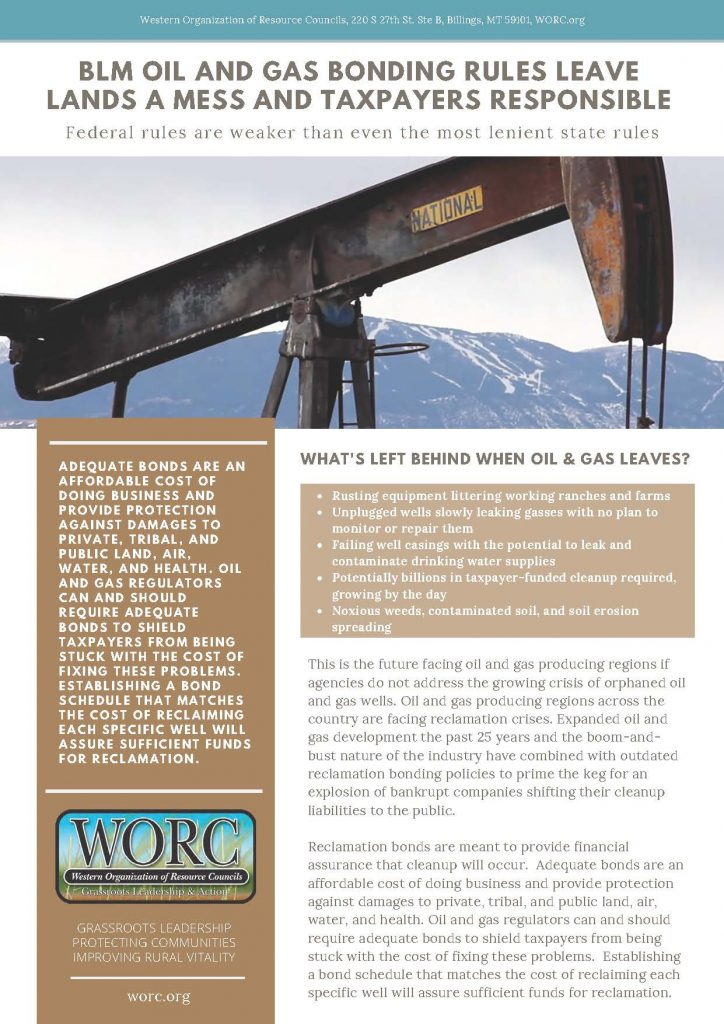In the midst of historically low oil prices and plummeting demand, inadequate federal and state reclamation bonding requirements make it easier for deeply indebted oil and gas operators to declare bankruptcy and walk away from orphaned wells en masse. This report by the Western Organization of Resource Councils examines the bonding rules in eleven Western states and found that the federal Bureau of Land Management’s (BLM) rules are weaker than any state’s. BLM’s $25,000 minimum statewide bond, which covers unlimited federal wells in a single state, is four times lower than the typical state requirement. While the federal rules are the weakest, rules vary from state to state and no state’s rules fully protect against abandoned wells.
The report recommends several long overdue and common-sense reforms to protect taxpayers, private landowners, and public lands from this growing crisis.
- BLM should end blanket bonding and require bonds based on the actual cost of reclamation of each well, similar to federal and state requirements for coal mines.
- Barring this, BLM should create a tiered bonding system that increases bond amounts as the number of wells increases, and as reclamation costs increase based on predictable factors such as well depth, location, and inflation.
- For wells that have not produced for 24 consecutive months, BLM should require repeated mechanical integrity testing and an increased bond, or require the well be plugged.
- Congress should establish an orphaned well fee and create a reclamation fund, either based on recent GAO suggestions or modeled on Wyoming’s fee and fund.

